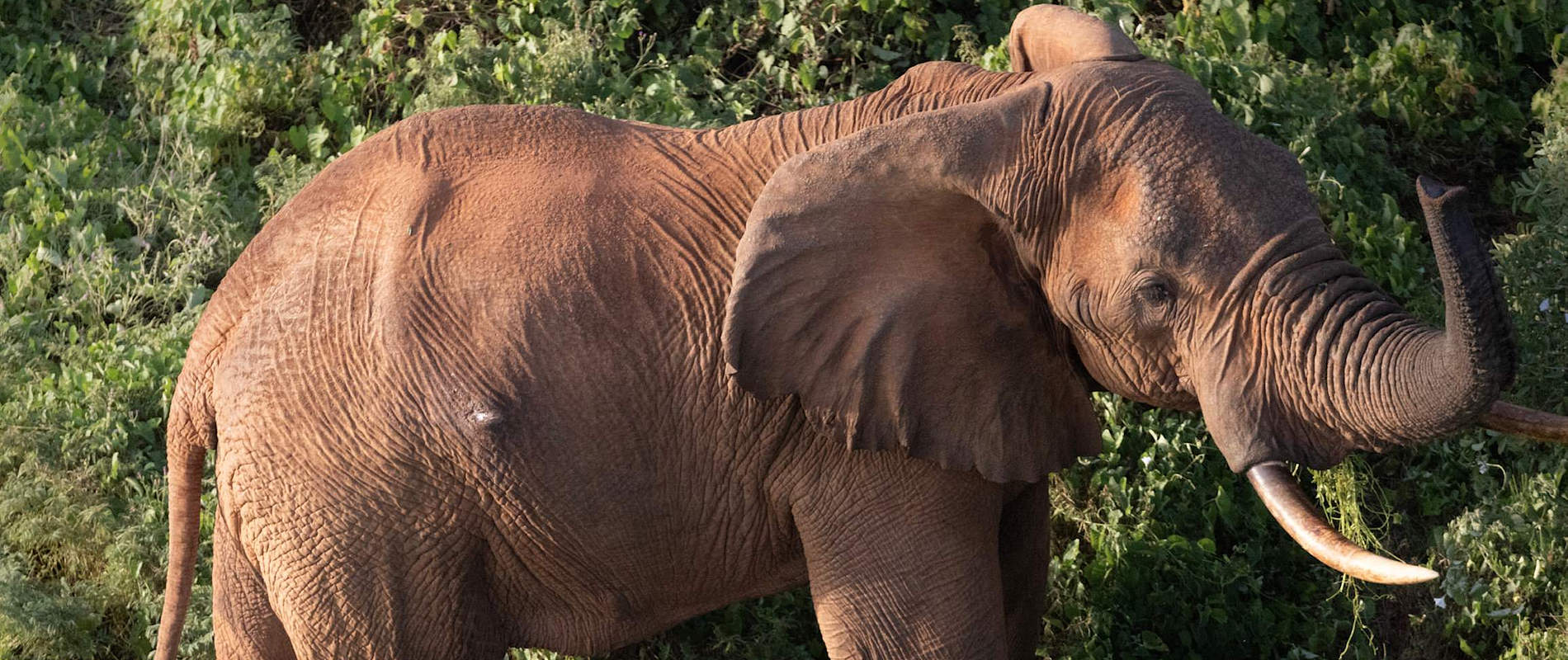11 hours of flight time. 1,273 kilometres covered. Three aircraft. Dozens of people, working on the ground and in the air. That’s what it took to help two wounded bulls — one speared, one arrowed — in a single day.
Every morning, SWT pilots conduct routine patrols over the wilderness. In the course of these flights, they scan for illegal activities, monitor known hotspots, and search for any irregularities or animals in need. On this particular morning, aerial patrols may have saved the lives of two elephants.
Just after dawn on the morning of 24th February 2023, the SWT Aerial Unit took flight. One fixed-wing pilot flew south towards Tsavo West, while the other headed to the northern sector of Tsavo East. They ended up on opposite ends of the Tsavo ecosystem, 83 kilometres apart, but they both made worrying discoveries: elephants who had been harmed by the human hand.
In Tsavo West National Park, at the base of Kangechwa Hill, Roan spotted a bull with a deep injury on his right side that was oozing pus. In Tsavo East National park, near Garzi, Neville found a different bull with an arrow wound on his back.
Both pilots reported their sightings to the Kaluku Operations room, and the team mapped out an action plan. The SWT/KWS Tsavo Mobile Vet Unit was wrapping up an operation in Bura, so the SWT helicopter flew down to collect them. Then, everyone made their way to Kangechwa Hill, where the first patient had been spotted.
After Dr Limo darted the patient from the air, the team converged on the ground. After flipping the bull over — he fell on the ‘wrong’ side when he succumbed to the anaesthetic — treatment could commence. As suspected, he had been speared. The injury was quite deep, but the spear had not damaged any organs or joints. After cleaning out the wound and administering antibiotics and anti-inflammatories, the bull was sent on his way with a positive prognosis.
Following a quick stop to refuel at Kaluku, the team headed north to Garzi. Neville was already there in the fixed wing, circling the area to relocate the bull. It took a few hours to find him, as he had moved since the morning and the vegetation is very thick in the northern sector of Tsavo East. With his location confirmed, Dr Limo prepared his second anaesthetic dart of the day.
This patient was another impressive bull, with distinctively asymmetrical tusks: one swept grandly towards the ground, while the other had been broken short. He had been struck by an arrow. While the injury was susceptible to infection, it had not yet caused any irreversible damage. The team followed the same protocols as the first treatment, cleaning the wound and administering medication to aid healing. Like the first patient, this bull is expected to make a complete and speedy recovery.
Nearly 12 hours after the first morning patrols began, the team returned back to base. All told, they covered 1,273 kilometres, logging 11 flight hours. The result was worth the enormous effort: Two elephants with potentially life-threatening injuries treated and saved, all in a single day.
